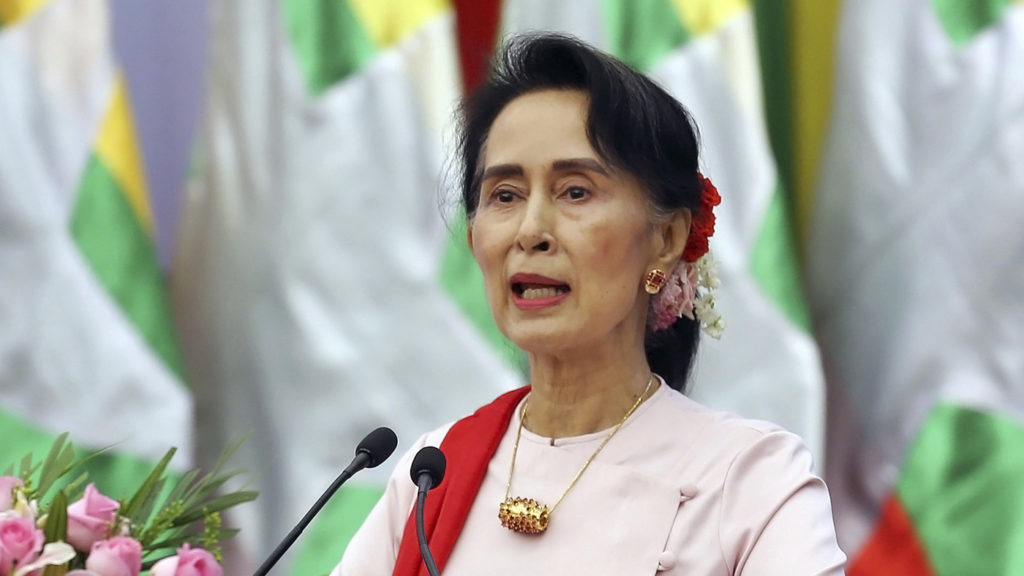Recently, a military coup in Myanmar has left the nation in a political lurch. Myanmar has been put under a one-year state of emergency, while the country’s de facto leader Aung San Suu Kyi and other senior politicians of her party have been detained.
Aung San Suu Kyi has been hailed around the world for her contribution to the democracy in Myanmar and has been awarded Nobel Peace Price for it. But recently on the international political stage, Suu Kyi has attracted criticism for her stand on justifying the Rohingya suffering in the nation. The Rohingya sufferings has been described by USA as ‘Rohingya Genocide’.
“Because of Suu Kyi’s failure to promote democratic values as Myanmar’s de facto leader, she should step aside and let other Myanmar democratic leaders take the reins with international backing and support,” Richardson said in a statement.
A decade after the rule of the military in Myanmar, military has again decided to hijack Myanmar’s democracy. Why does this come specifically around this time? This is because Monday was supposed to be the first day of a new session of Parliament following November elections that Suu Kyi’s party won in a landslide. The political victory of Suu Kyi irked the military as the military-backed party did poorly in the elections. Consequently, the military claimed widespread irregularities on voter lists as a possibility that could have led to fraud in the elections. Though the election commission refutes any such claims and states that there is no evidence to support those claims.
Maynmar police have filed charges against the ousted leader for illegally importing communications eguipment ‘walkie talkie radios’. She has been detained until February 15 for investigations, according to the police documents.
The military emphatically maintains that its actions are legally justified. The military retrieates that they are empowered to do so as an article in the constitution allows the military to take over in times of emergency. Though Suu Kyi’s party’s spokesman and many outsiders have firmly maintained that it’s a well-crafted coup.
Some noted that the looming retirement of Senior Gen. Min Aung Hlaing might be the reason for the military to go to lengths to disturb the status quo. The senior general has been commander of the armed forces since 2011 and who was put in charge on Monday.
“There’s internal military politics around that, which is very opaque,” said Kim Jolliffe, a researcher on Myanmar civilian and military relations. “This might be reflecting those dynamics and might be somewhat of a coup internally and his way of maintaining power within the military.”
So that there was no immediate uprising and for the coup to be caried out successfully, the television signals were cut across the country. Moreover, phone and internet access in Naypyidaw, the capital, were curtailed. Phone service in other parts of the country was also reported down, though some people were reported to still be able to use the internet in many areas.
What might have been the scenario that the Myanmar public might have to witness? Well, when residents flocked to ATMs and food stalls, some shops and homes were reported to have removed the symbols of Suu Kyi’s party, the National League for Democracy, that usually adorned the streets and walls of the city.
Governments and international organizations have vehemently condemned the takeover, saying it sets back the limited democratic reforms Myanmar has made till now.
“This is an extremely crushing blow to efforts to present Myanmar as a democracy,” said Linda Lakhdhir, a legal adviser at Human Rights Watch. “It’s creditability on the world stage has taken a massive hit.”
As quite predictable, watchdog groups fear a further crackdown on human rights defenders, journalists, and activists to come. Even before, there has been instances of legal proceedings against people who challenged the military.
U.S. President Joe Biden in his statement has threatened to impose new sanctions on Myanmar — a possibility others have raised to reciprocate.
Myanmar’s military leaders “must immediately free the democratic leaders of Myanmar and remove themselves from government,” said Democratic Sen. Bob Menendez, the incoming chairman of the Senate Foreign Relations Committee. “If not, the United States and other countries should impose strict economic sanctions, as well as other measures” against the military and its leaders, he said.
India on the other hand has issued the statement that it is “monitoring” the current situation closely and is “saddened” by the turn of events. Myanmar is India’s diplomatic ,strategic partner in south east Asia and its instability can mean repercussions for India. On the democratic grounds, India has always been a propagator and protector of democracy.

